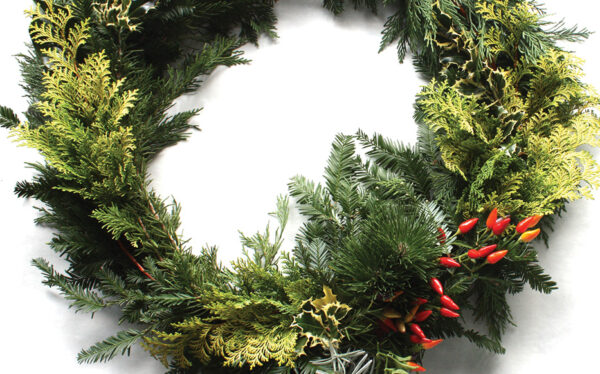WILDlife-friendly Holiday Tips
Let’s face it. The holidays can get pretty wild. There’s tons of food, people, gifts, decorations and alcohol. With this time of year in focus, it’s easy to forget the consequences our holiday traditions have on animals, and not just our pets. We’re here to help you plan your holiday festivities and remain conscious of ways you can help save wildlife.
Cleaning
If you’re hosting a get-together this season, then you’ll most likely need to do some cleaning to prepare for your guests, especially those difficult-to-please in-laws. Instead of grabbing for that toxic name-brand cleaner, why not make your own green cleaner for less money.
Instead of using abrasive cleaners for scrubbing and polishing, try using baking soda instead. Half a cup of baking soda mixed with one cup of vinegar and one cup of boiling water can also unclog drains.

Vinegar is one of the best household cleaners. It is perfect for removing soap scum, grease and mineral deposits, and acts as a deodorizer. Vinegar is such a popular cleaner that even the Virginia Zoo’s Keepers use a mixture of vinegar and water to clean exhibits and exhibit windows every day. Mix 10-20 drops of your favorite essential oils with 1 cup of vinegar and water to make your house look AND smell clean.
Instead of using and disposing of paper towels while cleaning, use cloth towels and rags. This cuts down on paper waste and gives you a little more scrubbing power.
Don’t have enough time to make your own stuff? There are several great eco-friendly household cleaner options available at most big-name stores. You can search through the best brands recommended by the Environmental Working Group here.
Cooking
The house is clean, but now it’s on to the main course. The biggest wildlife-friendly cooking tip is to be aware of which products use palm oil. Palm oil is harvested from the forests where orangutans live, thus leaving these beautiful animals without homes, leading to a decline in their overall population.
Check the ingredients on any products you purchase (especially those used for baking) to prepare your holiday meals, or any meal throughout the year for that matter. There are plenty of palm oil-free options, as well as options using sustainably-harvested palm oil from forests where orangutans are not found.

Refrain from using paper products to serve your food on, and definitely steer clear of plastic products that are non-recyclable. Speaking of recycling, be diligent about separating your trash, compost and recycling into separate bins, and urge your guests to do the same.
Decorating
Nothing is better than making your own unique holiday decorations. Your bank account will probably also thank you! Natural elements such as pine cones, twigs, leaves and acorns are charming for fall table centerpieces, and can even be adorned using felt, ribbon and fabric for Christmas decorations.
When shopping for live trees and wreaths, ask if they have been sprayed with pesticides or preservatives. You wouldn’t want to get sick from the most important decorations in your house, especially if you have pets, young children or elderly relatives. Non-treated trees and wreaths are also better for the environment after the holidays, as they will decompose naturally without any harmful effects.

Want a handmade eco-friendly wreath for your front door? Use greens, herbs, dried fruits and vegetables and other accouterments from your garden or local grocer.
Gifts

Finding the perfect gift for everyone on your list can be hard, but wrapping that present doesn’t have to be a feat. Just make sure to use recyclable materials when purchasing the wrappings, or opt for a cool reusable tote, basket or box. Paper bags, old maps, newspaper and brown shipping paper can all be used (and recycled) as decorative giftwrap.
Wrapping paper can be recycled as long as it does not have metallic paint, glitter, or a puffy texture. Most unembellished cards can also be recycled, but photo prints cannot. Reuse tissue paper you receive for as long as you can and then compost it. It cannot be recycled
You can find some awesome reusable totes in the Virginia Zoo Gift Shop, as well as a few gifts for inside the tote!
The Aftermath
Cleaning up and getting back into your regular routine after the holidays is hard. Again, be diligent about separating your trash, compost and recycling into separate bins, and urge your guests to do the same. Dispose of decorations properly, especially old trees and wreaths.

Why wildlife-friendly?
Toxic chemicals are not only harmful to the environment, but they are also bad for your pets and humans. You’ll feel healthier and have a clean conscience knowing that you’ve made a difference this holiday season, despite being overstuffed with food and spoiled from all of your gifts.